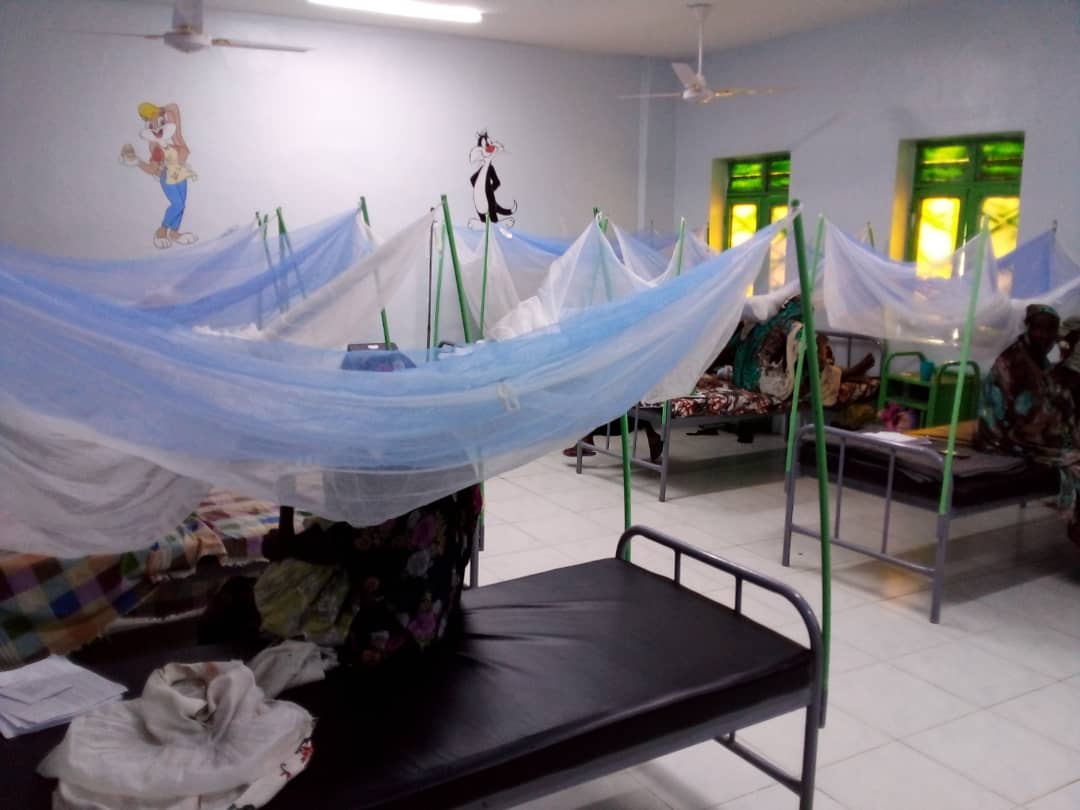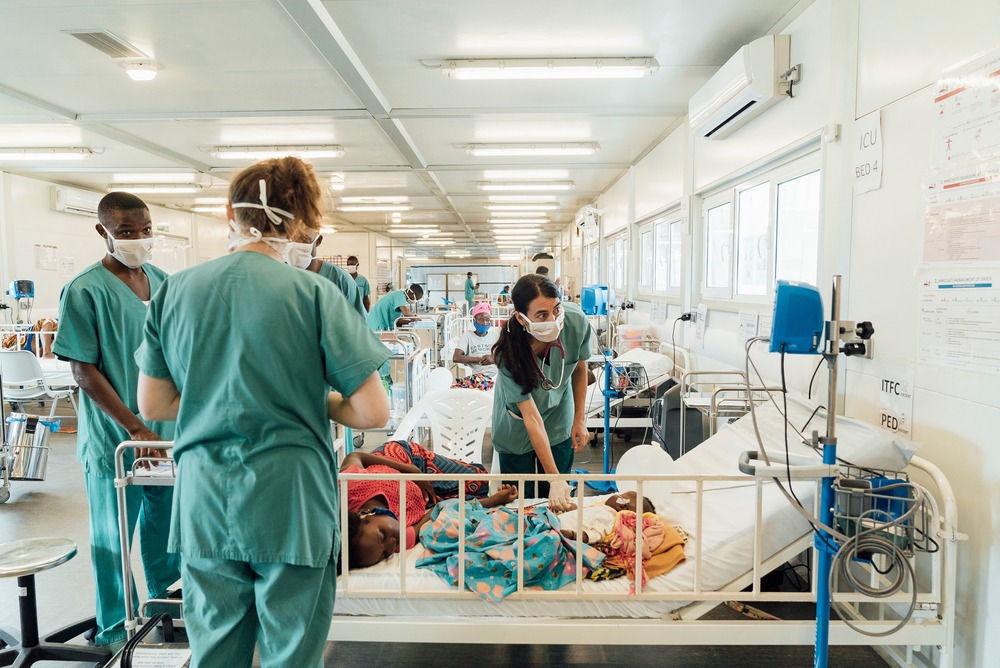Paediatrician in the field: a challenging experience
Charlotte is a paediatrician. After completing her specialization in 2019, she trained in tropical medicine in Antwerp. A few weeks later, in September 2020, she flies to Kenema, Sierra Leone for her first mission. She returns home very determined after her first 6-month experience. Today, she shares with us her daily life in Sudan, where she is currently on a 9-month mission.
"The project is located in the Blue Nile state - far from today’s major conflicts. It is quiet at the moment, but the area has been devastated by the war a few years ago. Many people have been displaced to neighboring countries such as Ethiopia and South Sudan. It is a country, and particularly a region, where the health system has collapsed. Our project focuses on nutrition - a particularly acute problem here, especially for children under 5 years of age. The referral hospital where we work already had a nutrition unit. We joined the local team to work alongside them and improve the quality of care. This is a long-term project that aims to provide sustainable support where we know that the number of patients and the situation will not improve in the coming years. There is a need for a lot of support, especially in terms of training local staff."
"As a paediatrician, I work with the local doctors at the hospital to ensure that we remain close to our young patients. The Project Medical Referent organizes all activities from a medical point of view. He is in contact with the hospital, decides on the direction of care, and discusses with the local authorities. There is a person in charge of Human Resources/Finance, another one in charge of logistics and supply. The latter oversees the rehabilitation of the hospital, the transport of medicines, our accommodation, and anything else we may need on site. There is a person responsible for water and sanitation. Recently, a Nurse Activity Manager acts as a link between the patients, the project, the coordination and the staff. And then there is the Project Coordinator who coordinates the project and ensures security management on site."
Working in the field with MSF requires great flexibility.
"Daily work varies greatly. I work mainly in the hospital with four local doctors. We see patients 24/7. I accompany my colleagues, support them and share my expertise as a pediatrician when necessary. Since our project focuses on nutrition, I mainly give basic training in this field. I collaborate not only with the doctors, but also with the nurses, the caregivers, the people who distribute the food... so that everyone is aware of the importance of their work. I would say that my job requires medical knowledge, but also training skills, being able to encourage others and be diplomatic. Because this is a new project, it also requires assessing the needs of the hospital. Every day brings its own surprises. Of course, everything we do is for the benefit of the patients. They are our focus. Everything we pick up at the market, everything we ask the supply team for, the time we spend talking to the rest of the staff: it's for the patients."

Working abroad means working with a multidisciplinary and multicultural team. Cultural differences exist and while they are a source of enrichment, they can sometimes lead to misunderstandings.
"Most people recruited locally are very motivated because they are doing humanitarian work for their own community. This is a driving force for these people. In addition, we arrive in a country that is not our own, with a different culture. You need a lot of patience, open-mindedness and expect to be surprised. Living in an international team requires a lot of patience and the ability to adapt to others. In terms of work, it is not always easy. On my first assignment, I thought I was going to make a difference just by being there. But it's not true. Everyone brings a little something. It's not always easy to see the positive impact you have directly. This is not only true for medical professions, HR, logs, ... we do not see the benefit we bring immediately despite all the energy we give. We sometimes feel discouraged. You must be prepared to experience this feeling. But knowing why we do this job and being surrounded by our colleagues helps us to overcome these feelings."
Tolerance and mutual respect are essential values at Médecins Sans Frontières. Every day, Charlotte learns from the staff how to communicate better with the community and the patients. "They are the ones who maintain the link and make the project last over time. This requires working on oneself and with the teams. In addition, MSF has very high-quality standards, which are not necessarily the same as those of the country in which we work. It is a collaborative effort at all levels to try to achieve these standards."
For MSF, staff safety is a priority. It is therefore essential to respect certain safety rules. "I am fortunate to be in a state in Sudan that is quite calm. The main rule to respect is the curfew. You must be home by 10pm and once it gets dark, you can't go out alone. Afterwards, you are allowed to walk around the city, to go to the market without an escort. You can go with others or you can go alone. On the other hand, in October during the coup, we had to be confined in our guest house. But it was not a strict lockdown. We had to stay in the house, but we could go to the windows, we were free in the house. At that time, the communication lines were cut. But the mission leader had a satellite phone. We could call our families if we wanted to reassure them. That was one of the biggest security challenges."
In the field, free time is rare and therefore precious. "Here in Sudan, I have less free time. I take advantage of it to sleep a lot, ... sometimes I stay alone, read and watch TV series. Most people understand and respect that. In my previous mission, I had a bit more free time. I developed my artistic side. We painted, listened to music, played board games."
While being assigned to a mission overseas is exciting, returning home can be taxing: working in the field leaves its mark. For Charlotte, the important thing when she returns from a mission is to "rest and get back to normal life."
"You have to readjust to your life at home. Maybe a practical advice: it is better to pay all your bills and take care of all administrative matters before leaving. So, pay everything off first. Besides, take something with you that will make you feel good when you need it: whether it's paint, chocolate, coffee or anything else. It's vital I think."

